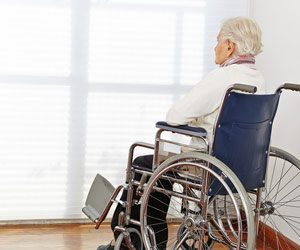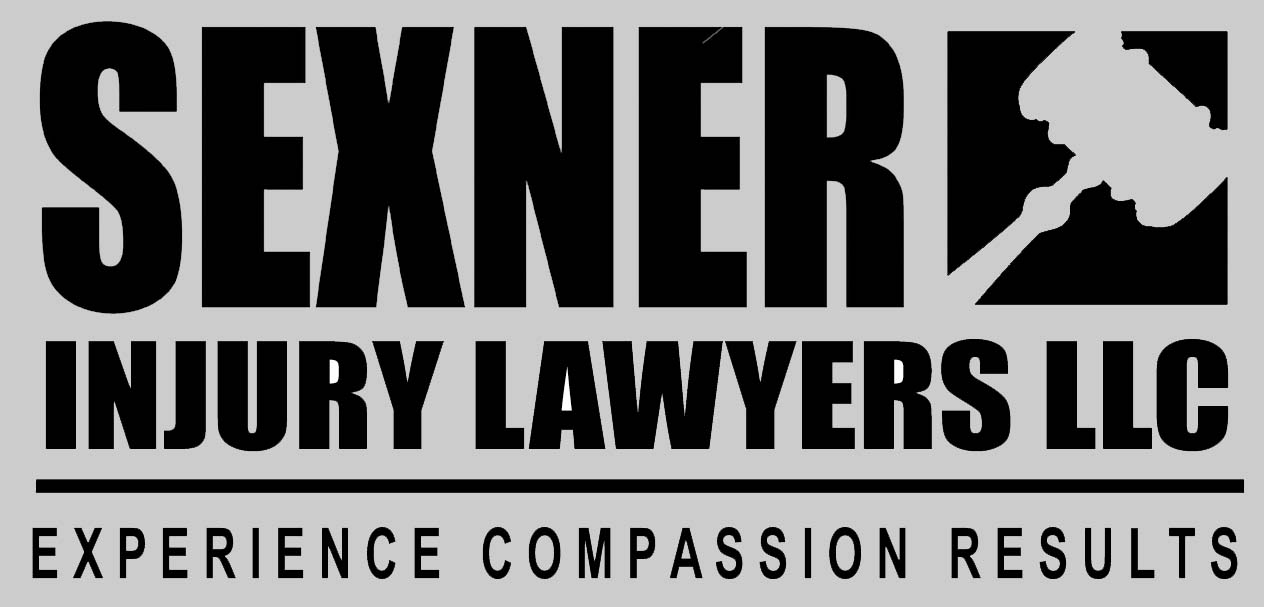Chicago Nursing Home Abuse Victim Lawyers
 There are over a million reports of elder abuse by nursing home staff each year nationwide. This number rises each year because the amount of people in nursing homes constantly goes up. Nearly 40 million elderly Americans live in nursing homes. With so many people in assisted living facilities, the amount of abuse cases reported (and not reported) is alarmingly high.
There are over a million reports of elder abuse by nursing home staff each year nationwide. This number rises each year because the amount of people in nursing homes constantly goes up. Nearly 40 million elderly Americans live in nursing homes. With so many people in assisted living facilities, the amount of abuse cases reported (and not reported) is alarmingly high.
Our parents and grandparents enter nursing homes trusting the facility to treat them with care. But, the problem of nursing home abuse in this country shows that far too often these facilities fall short in their promise of care. In these situations, nursing homes need to be accountable for injuries they've caused.
If you suspect an elderly loved one is suffering, contact Sexner Injury Lawyers LLC. You can reach us at (312) 243-9922.
Common Types of Nursing Home Abuse
According to the National Center for Elder Abuse, the general neglect of basic needs is the most common type of nursing home abuse. General neglect generally comes in these forms: lack of food, lack of water, and lack of general living amenities. In many nursing abuse cases, these problems are tied to understaffing, bad training, and lack of resources.
Physical abuse is also a major issue in nursing homes nationwide. In nursing home settings these are the most common types of physical abuse:
- Battery
- Sexual assault
- Physical restraint
- Being deprived of food or water
- Medication errors (overdose, inadequate dose, giving wrong medication)
Another widespread problem in nursing homes is emotional abuse. These are the most common types of nursing home emotional abuse:
- Threats of violence
- Mocking
- Humiliation
The best way to tell if your elderly relative is suffering abuse is to look for signs. If they act agitated or withdrawn around you or staff, they might be in pain.
Signs of Nursing Home Abuse to Look For
The National Center on Elder Abuse (NCEA) reports that 10 percent of elderly adults are abused nationwide each year. This, of course, doesn't count all the situations of elder abuse that aren't reported. Paying attention to how your elderly loved one is behaving is one way to tell if they're being abused. There are also physical signs you should be looking out for. These include:
- Bedsores
- Cuts, bruises, or welts
- Drastic weight loss
- Infections
- Lack of personal hygiene
- Unexplained injuries
Causes of Nursing Home Abuse & Neglect
Neglect is another nursing home issue. As one might imagine, there is no single specific reason why neglect happens in nursing homes. Sometimes, the reason is purely accidental. But unfortunately, sometimes neglect is intentional. Yet regardless of why such matters occur, the effects of an abusive or neglectful environment may have long lasting, permanent, or even fatal results. Some of the reasons include:
- Staff Negligence: Everyone makes mistakes. But those charged with taking care of the elderly, infirm and recovering must be held to a higher standard. This is because such patients depend so greatly upon the assistance given by their medical caregivers and often are not able to properly care for themselves.
- Intentional Conduct: Just as there are good and bad people in all walks of society, so too are there good and bad personnel in the medical and nursing fields. Some people simply use their positions of power to take advantage of others so as to cause nursing home residents pain and discomfort. Such conduct of course, is unforgivable, especially considering that the abuse and neglect involves others who are in dire need of their help.
- Facility Negligence: Aside from the negligence and criminal conduct of staffers, sometimes the fault must lie at the highest levels of management. When nursing home owners and managers fail to properly staff their facility, or when they cut corners or overwork their employees, serious mistakes are bound to happen, leaving the residents in danger of injury or death.
Nursing Home Understaffing and Neglect in Chicago
In nursing homes and inpatient facilities across the country, understaffing is a significant and pervasive problem. After all, patients in such facilities are the ones in the greatest need of personalized ongoing attention as they require help going to the bathroom, feeding themselves and caring for their daily needs. When the medical staff is unable to proper care for their patients, it is often only a matter of time before tragedy strikes, resulting in death or great permanent injury. Here are some common causes of nursing home understaffing:
- Cost: Although providing the best care possible is the number one consideration for many nursing homes, sometimes the facility simply does not have sufficient income (based upon revenues and governmental assistance) to keep an adequate and experienced staff.
- Pursuit of profit: It is an unfortunate fact of life that many other nursing home and inpatient facilities operate primarily in pursuit of greater and greater profits. Cutting staff and underpaying medical employees is one such way to increase profits.
- Labor costs: Certified Nursing Assistants and Registered Nurses tend to be well-paid employees. Many facilities simply cannot afford this level of expertise and make do by stretching their otherwise less qualified staff.
- Difficulty maintaining employees: Working in a nursing home can be exhausting and difficult. When faced with the choice between working in such a facility and working for equal or greater pay in a hospital or doctor's office, many simply choose to leave.
Avoiding Dangerous Nursing Homes in Illinois
Choosing which nursing home to place a loved one in is one of the most important and most difficult choices that a family must make. Nursing homes and inpatient facilities go to great lengths to portray their businesses as safe, friendly, and medically sound. Millions of dollars each year are spent on advertising and printed materials in the hopes of attracting new patients and the income that can be generated as a result.
Nursing Home Malpractice Checklist
But because the choice of a nursing home is so very important, one cannot rely on advertising materials alone. Each facility under consideration should be visited personally. When there, use your common sense and take note of your impressions regarding not only the physical place, but of the appearances of both patients and medical staff. Some of the important items to take notice of include:
- What is the interaction between nursing staff and residents?
- Are areas for relaxation and entertainment available?
- Upon entering the nursing home, do you smell feces or urine?
- Is the dining room clean and well kept?
- Are the hallways lit properly?
- Do medical carts appear locked, without any drugs, needles or other dangerous items present?
- Are doorways and entrances clear?
- Are their safety sensors working at the exits?
- Are hall, wall and stairway railings the proper height and firmly attached?
- Are there any mats or rugs that residents might trip on?
- Are the floors clean?
- Are the residents clean and orderly?
- Are programs offered that are interesting to your loved one?
- Are the patients just sitting in wheelchairs in hallways?
- Is the staff properly and politely engaging with residents?
- Are there any foreign objects on the floor that might be tripped on?
- Are any patients calling for assistance?
- Is the nursing staff promptly responding to requests for help or flashing call lights?
- Are there any signs of mold?
Contact An Experienced Chicago Nursing Home Abuse Attorney
If you're concerned about the care your elderly relative is receiving, don't hesitate to contact the Chicago injury lawyers at Sexner Injury Lawyers LLC. We've helped many families through the process of bringing an elder abuse claim against assisted living facilities. Let us help your family next.
Contact us today at (312) 243-9922.

